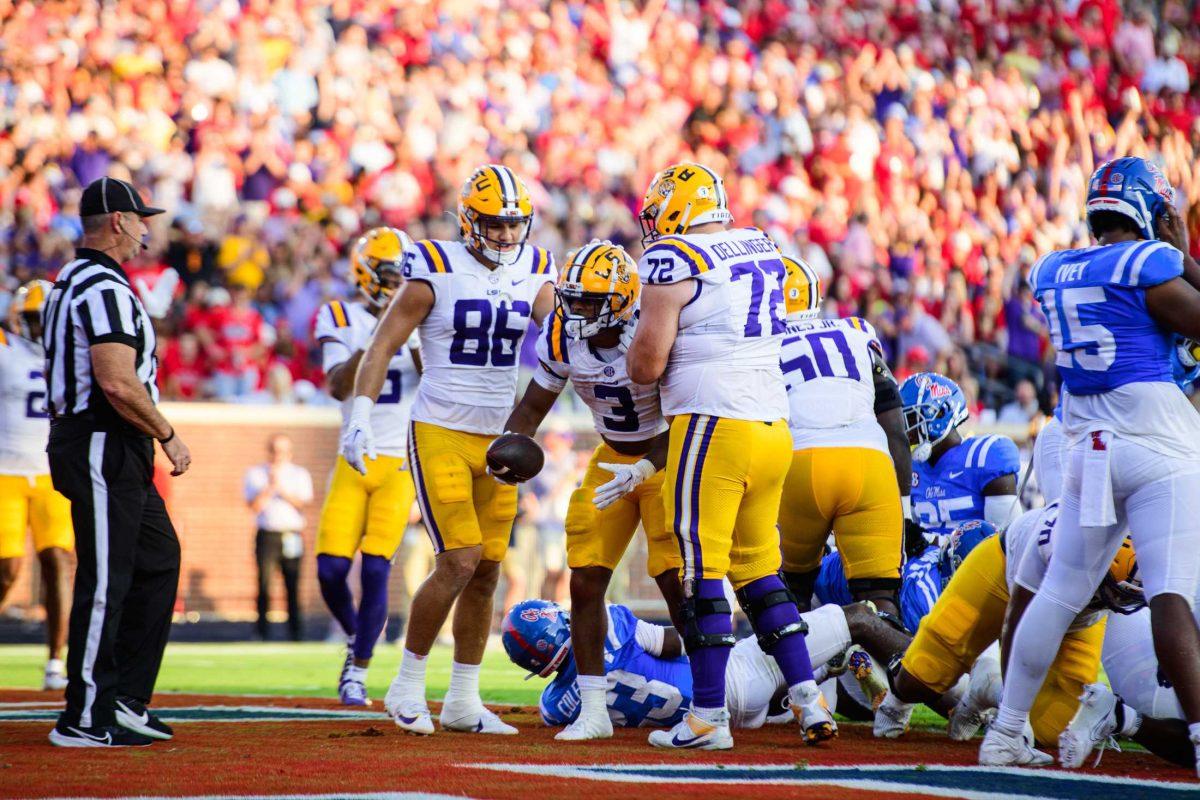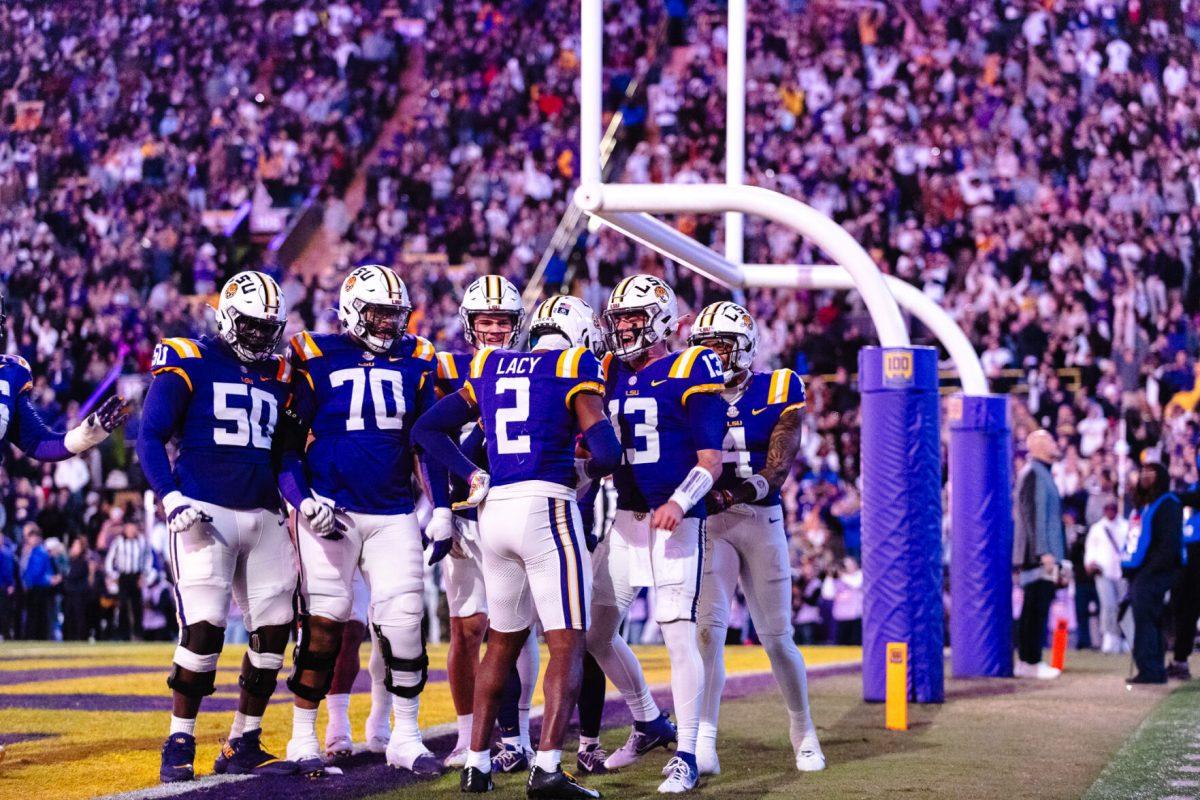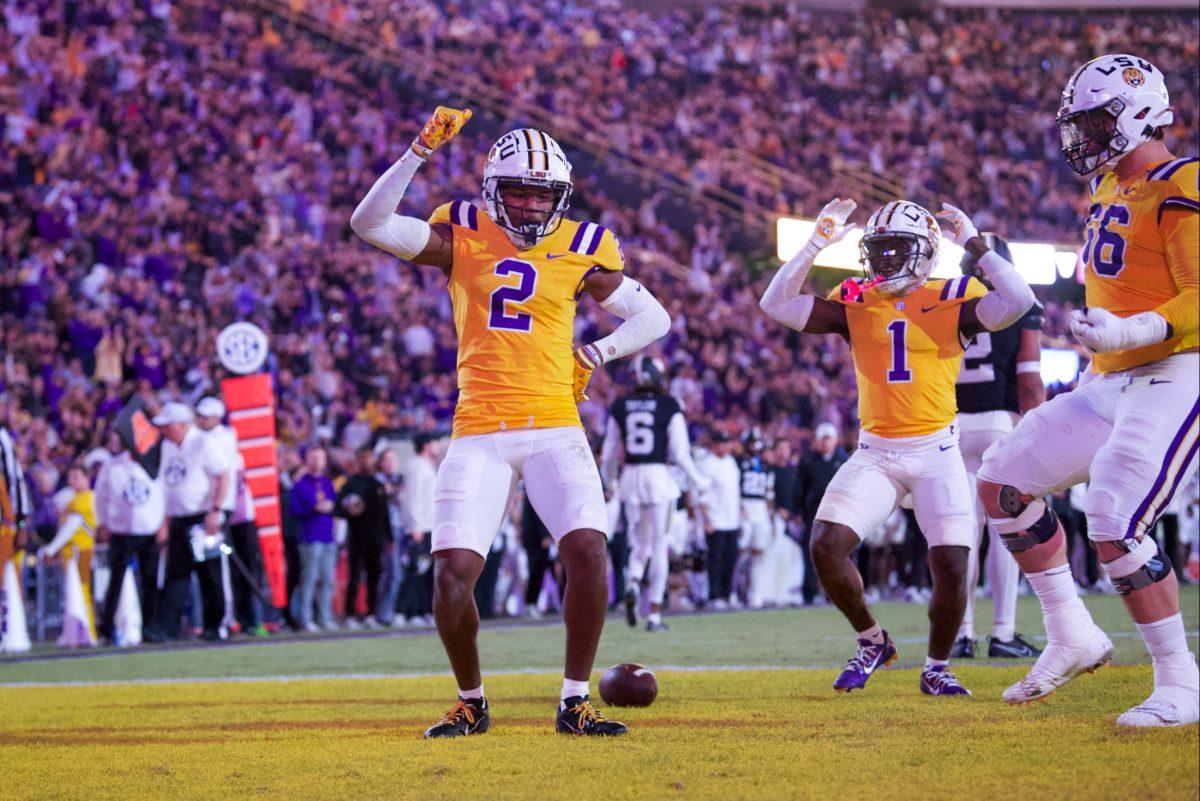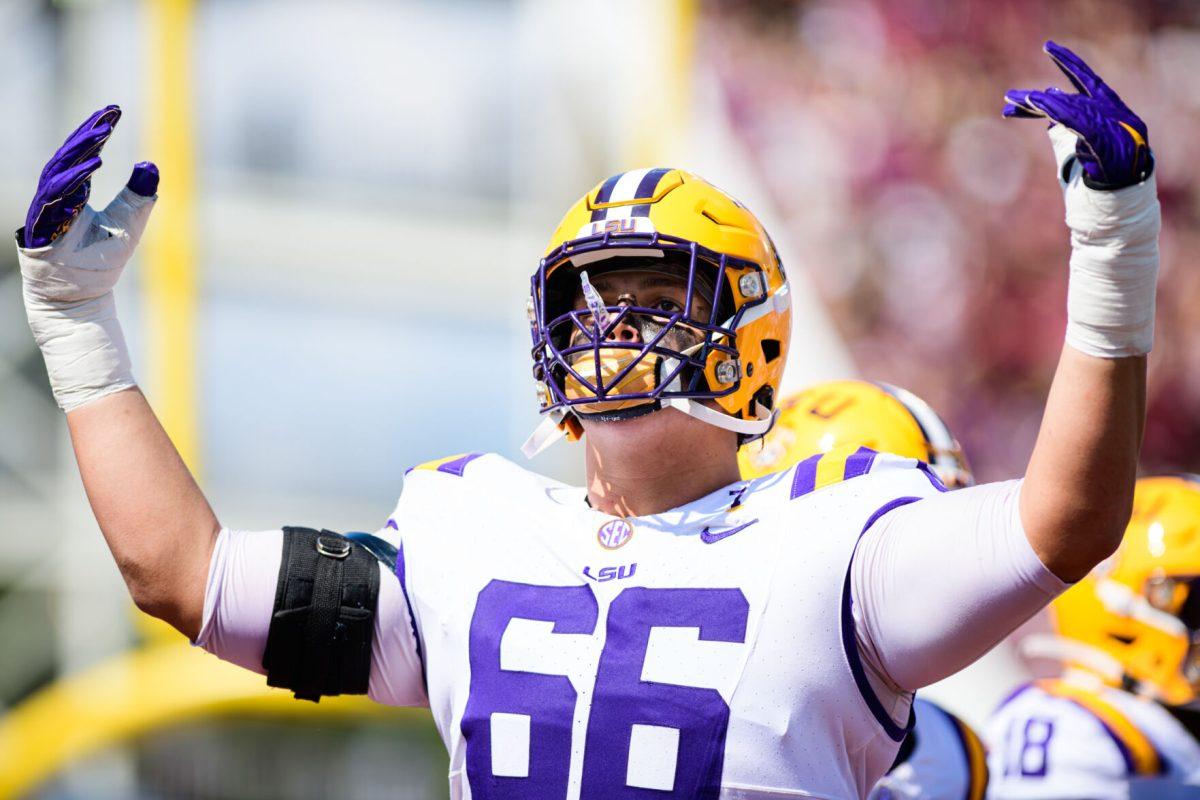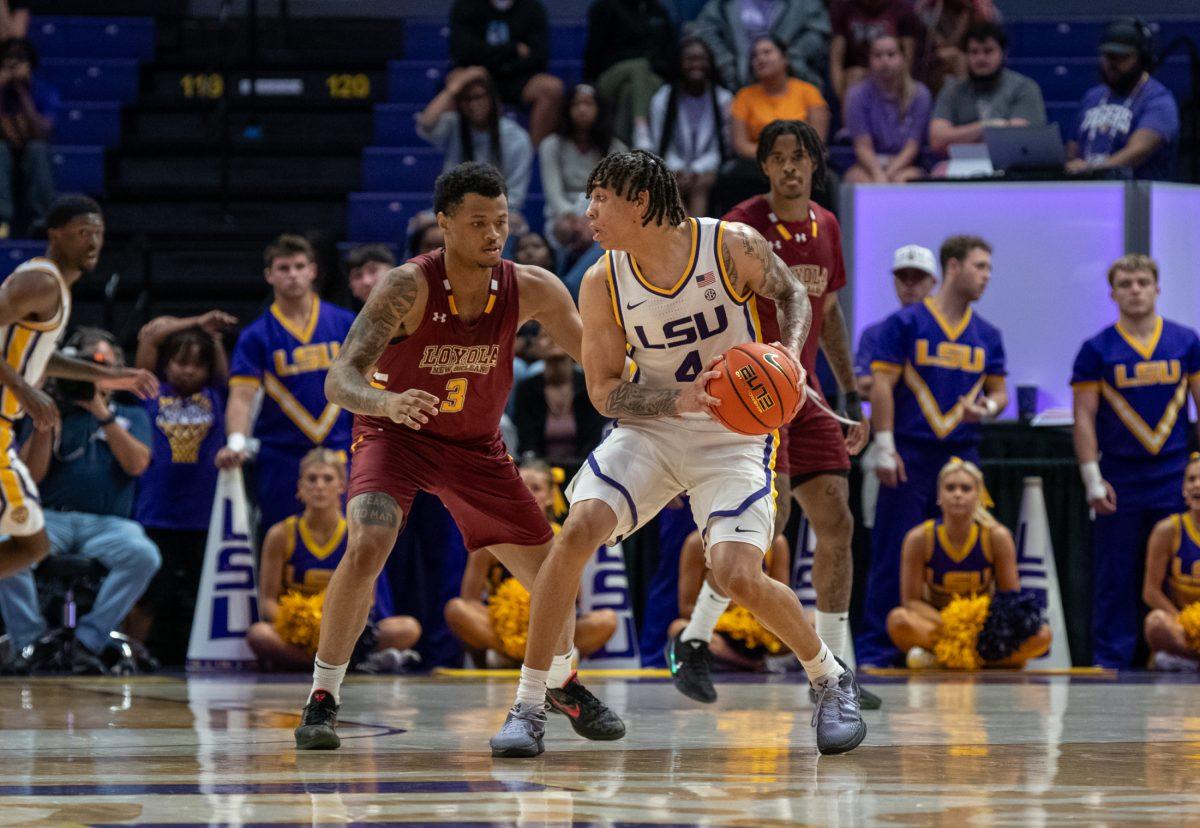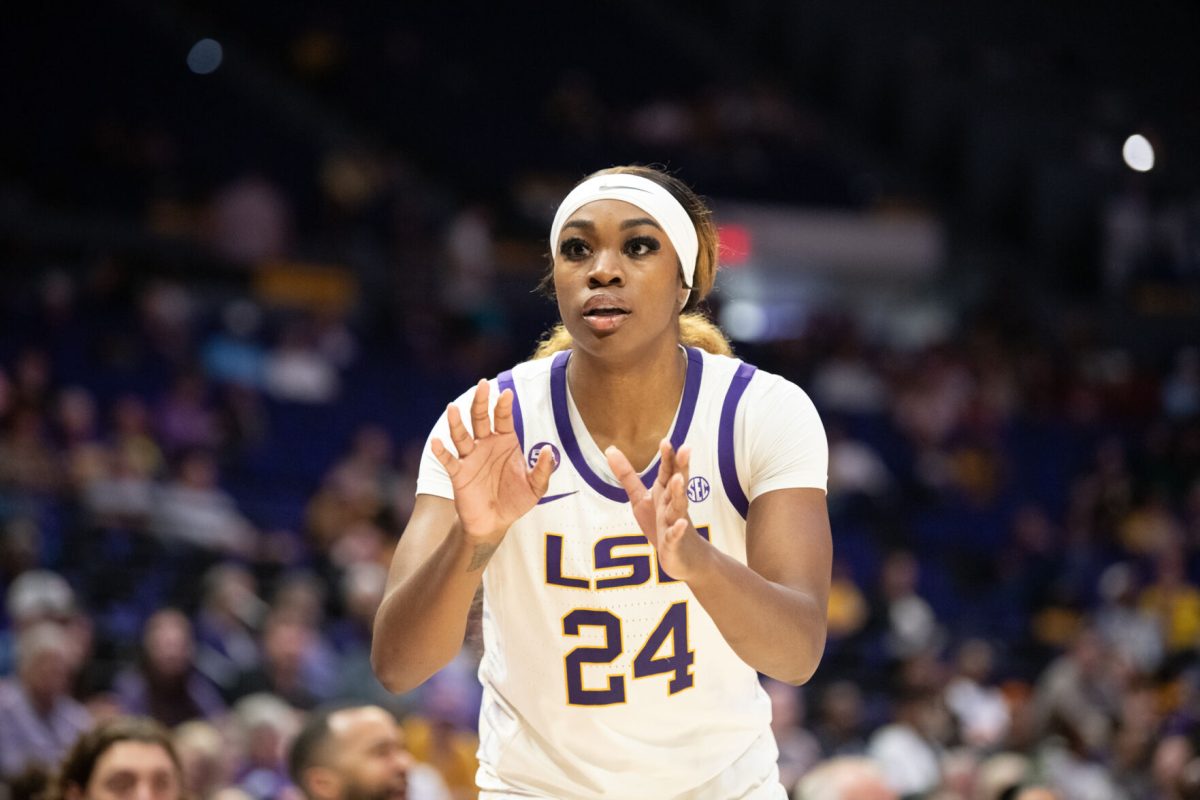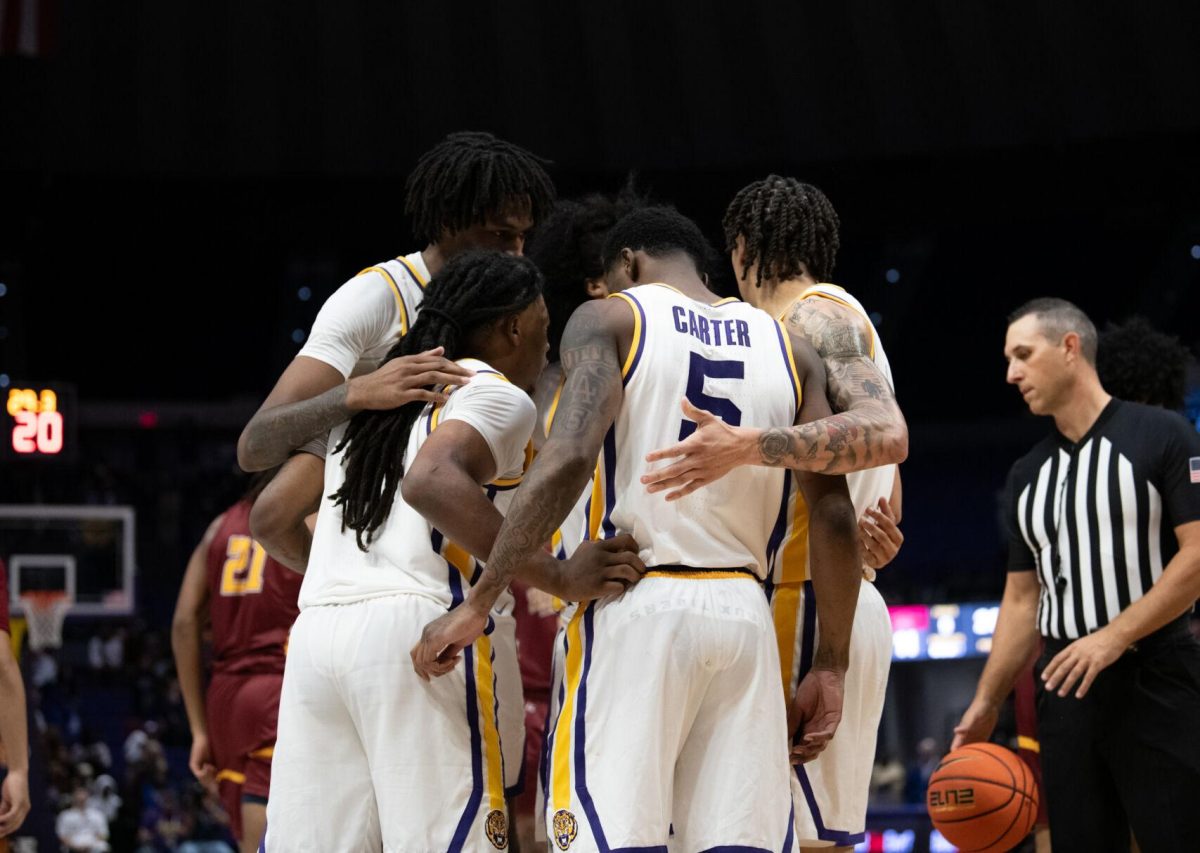For the second straight week, LSU is in for a Tiger-Tiger matchup as it hosts Auburn in Death Valley on Saturday.
However, Auburn is a team in a much different place than Missouri was. While Missouri came in undefeated and ranked, Auburn is 3-2, having dropped both of its first two SEC games.
Auburn is also constructed much differently. Missouri was one of the top passing attacks in the nation, while Auburn has struggled mightily passing the ball and leans on the run.
There are only 11 teams in the country who run the ball more often on average than Auburn. The Tigers are No. 19 in the country in rushing yards per game, a product of a committee approach.
Quarterback Payton Thorne, who transferred this offseason after two years starting at Michigan State, has been at the forefront of that attack, showing rushing ability that wasn’t utilized during his time in Lansing.
He has 198 yards on 45 attempts on the ground this year through five games after previously having a career best of 181 in his redshirt sophomore season. He’s captained an offense that has utilized a lot of run-pass options.
Backup quarterback Robby Ashford, who started for most of last season after taking over for TJ Finley, occasionally subs in to contribute a different dimension of speed and strength, almost exclusively for run plays. He has 144 yards on the ground and five touchdowns.
Auburn also uses a number of running backs, including juniors Jarquez Hunter and Brian Battie.
However, that has been combined with a passing offense that’s been woefully ineffective. Thorne has thrown for 643 yards and has as many touchdowns as interceptions.
The Auburn passing offense has the worst efficiency rating, yards per game and yards per attempt in the SEC, ranking in the bottom third of the country in each category. The unit has yet to put together a game with over 100 passing yards against a Power 5 team this season, which is not a particularly high bar.
The team has had issues with drops, missed blocking assignments and poor recognition of open receivers from Thorne. Auburn head coach Hugh Freeze has noted that Thorne has at times been distracted by pressure and failed to read the field, something that the LSU pass-rush will hope to take advantage of.
Ahead of Auburn’s near-upset of No. 1 Georgia two weeks ago, Freeze took over play calling duties from offensive coordinator Philip Montgomery. It produced Auburn’s best offensive output of the season against a Power 5 team as Auburn narrowly lost, 27-20.
However, Freeze’s hands are tied to an extent. He’s tailoring his offense to its strengths, and staying balanced is difficult for Auburn with the personnel it has. The Tigers still amassed only 88 passing yards in the Georgia game.
Overall, Auburn ranks No. 89 in yards per game and No. 105 in third down conversion rate. The offense hasn’t been good at generating sizable gains and often finds itself in difficult third down situations, which its passing offense isn’t prepared to convert. Tellingly, Auburn ranks first in the SEC in punts per game.
LSU’s defense will need to be disciplined in the run game and render Auburn one-dimensional. There’s reason to be concerned that even Auburn’s pass game could get going against a struggling LSU secondary, as the SEC’s worst offense by yards per game in Arkansas piled up 426 yards on the Tigers, with 289 through the air.
However, if LSU’s defense continues to show the progress it made in the latter half of the Missouri matchup, Auburn’s offense shouldn’t challenge it too much. There are few easier matchups for LSU’s maligned defensive backfield.
Auburn has a good defense that ranks in the nation’s top 40 in points allowed, passing yards allowed, turnovers forced and third down conversion rate allowed.
Simply said, Auburn does a lot of things well on that side of the ball. Against Georgia, the Tigers rendered the Bulldogs’ rushing game mostly ineffective and forced quarterback Carson Beck into an early mistake with an interception.
Auburn has a talented secondary, starting with the skilled cornerback duo of DJ James, a second team All-SEC selection last year, and Nehemiah Pritchett.
Free safety Jaylin Simpson has been the defense’s best player this year. He has a nation-leading four interceptions and provides value as a centerfield ballhawk for Auburn.
Against Georgia, Simpson suffered a calf injury in the third quarter. Before that, he was instrumental in helping cover star Georgia tight end Brock Bowers. Up to Simpson’s departure from the game, Bowers had two receptions for 10 yards. After, he had six receptions for 148 yards and a touchdown.
Simpson, who’s probable to play Saturday, will likely be involved in bracketing Malik Nabers and Brian Thomas Jr. on routes downfield.
Though it’s a tough ask for any pass defense to stop Jayden Daniels and the Tigers’ receivers, LSU will need to be on the lookout, particularly for Simpson.
If there’s slippage in any category for the Auburn defense, it’s the front seven. Auburn ranks as No. 52 in the country in rush yards allowed per game and is a middling No. 78 with two sacks per game. The unit isn’t bad, but it hasn’t been as formidable as Auburn’s secondary.
Especially with starting defensive end Mosiah Nasili-Kite suffering a season-ending injury against Georgia, the talented LSU offensive line may have its way with the Auburn front. That could mean a big day for running back Logan Diggs, especially if LSU gets out to a lead and starts to play clock control.
LSU should be prepared to play a sound and disciplined game against an Auburn team that may lack in explosiveness but has plenty of toughness. Still, if Daniels and the offense put up the points as they have all year, it’s hard to envision Thorne and the Auburn offense keeping pace.




